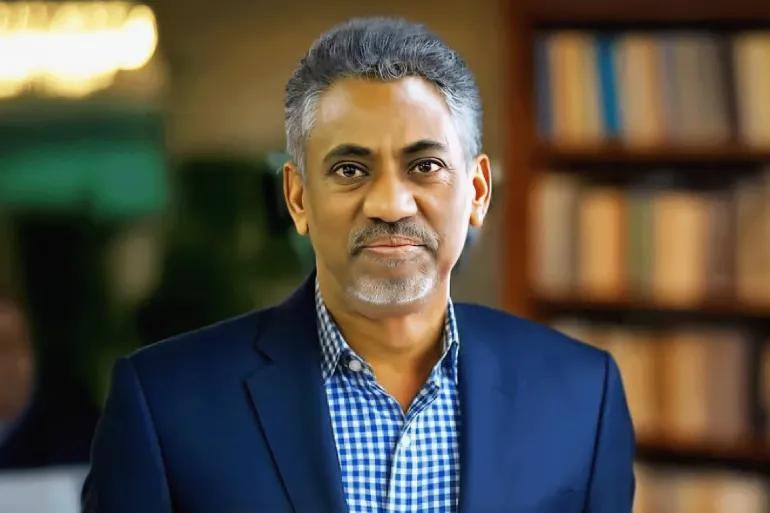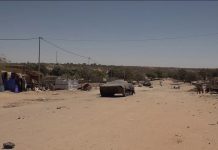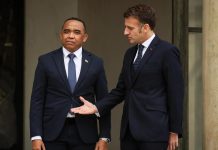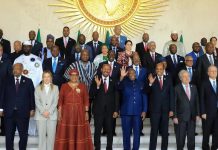What You Need to Know
Eritrean Minister of Information Yeman Gebremeskel has accused Ethiopia’s Prosperity Party of attempting to incite an “unjustified war”. This comes in response to Ethiopian Foreign Minister Gedion Timotheos’s claims that Eritrea is destabilizing Ethiopia. The situation reflects ongoing tensions rooted in historical conflicts between the two nations.
Africa. Eritrean Minister of Information Yeman Gebremeskel has accused Ethiopia’s ruling Prosperity Party of seeking to “ignite an unjustified war” and “reproduce expansionist rhetoric”. This statement was made in response to Ethiopian Foreign Minister Gedion Timotheos’s claims that Eritrea is destabilizing Ethiopia.
Gebremeskel stated in social media posts that the Ethiopian minister’s speech lacks factual basis and reflects an “institutional incapacity to confront historical truths that confirm the roots of the conflict originate from Ethiopia itself”.
He accused the Ethiopian ruling party of misleading public opinion by “repackaging its old war rhetoric and attempting to portray itself as the aggrieved party”.
The Eritrean Minister noted that Addis Ababa has recently toned down its inflammatory rhetoric regarding obtaining access to the sea by force and its influence projects in the Red Sea, after realizing that these proposals lack domestic and international acceptance.
However, he viewed the current silence as not a reconsideration but a maneuver aimed at justifying a potential war as self-defense.
Opposition Support
On the other hand, the Eritrean National Democratic Coalition, an opposition group, welcomed the Ethiopian Foreign Minister’s speech, seeing it as a “positive step that can be built upon to reshape relations between Eritrea and Ethiopia on more balanced and stable foundations”.
The coalition’s foreign relations office stated that “enhancing cooperation between the Eritrean and Ethiopian peoples can serve as a model for reducing external interventions and tensions that have affected the region for years”.
Ethiopian Accusations
Ethiopian Foreign Minister Gedion Timotheos described the relationship between Ethiopia and Eritrea as one of the “most prominent chronic hotspots in the region” during his speech at a foreign policy forum in Addis Ababa. He added that the 2000 Algiers Agreement ended active warfare without addressing the roots of the dispute, leaving the two countries in a state of no war, no peace.
Timotheos criticized the prevailing interpretation that links tensions to Ethiopia’s maritime ambitions, calling it a “misleading simplification” that does not reflect the complexities of the political and security realities between the two countries. Ethiopia has been landlocked since Eritrea’s independence in 1993.
The minister accused Asmara of interfering in Ethiopia’s internal affairs and becoming a tool for external forces seeking to weaken and destabilize Ethiopia.
Ethiopia and Eritrea faced a bloody war that resulted in tens of thousands of deaths between 1998 and 2000 due to border disputes. Relations between the neighboring countries improved in 2018 with Abiy Ahmed’s rise to power in Ethiopia and his signing of a peace agreement with President Isaias Afwerki, who has ruled Eritrea since 1993. However, tensions escalated again in 2022 following the end of the war in the Tigray region of northern Ethiopia. Ethiopia accuses Eritrea of funding armed groups fighting against its federal forces, particularly in the Amhara region.
Ethiopia and Eritrea have a long history of conflict, particularly over border disputes that led to a brutal war from 1998 to 2000, resulting in tens of thousands of deaths. Although relations improved in 2018 with a peace agreement, tensions resurfaced in 2022 following the end of the Tigray War, with accusations of Eritrea supporting armed groups against Ethiopia’s federal forces.
The 2000 Algiers Agreement ended active hostilities but did not resolve underlying issues, leaving both countries in a state of no war, no peace. The Ethiopian government has accused Eritrea of meddling in its internal affairs, further complicating the fragile relationship between the two neighboring countries.






